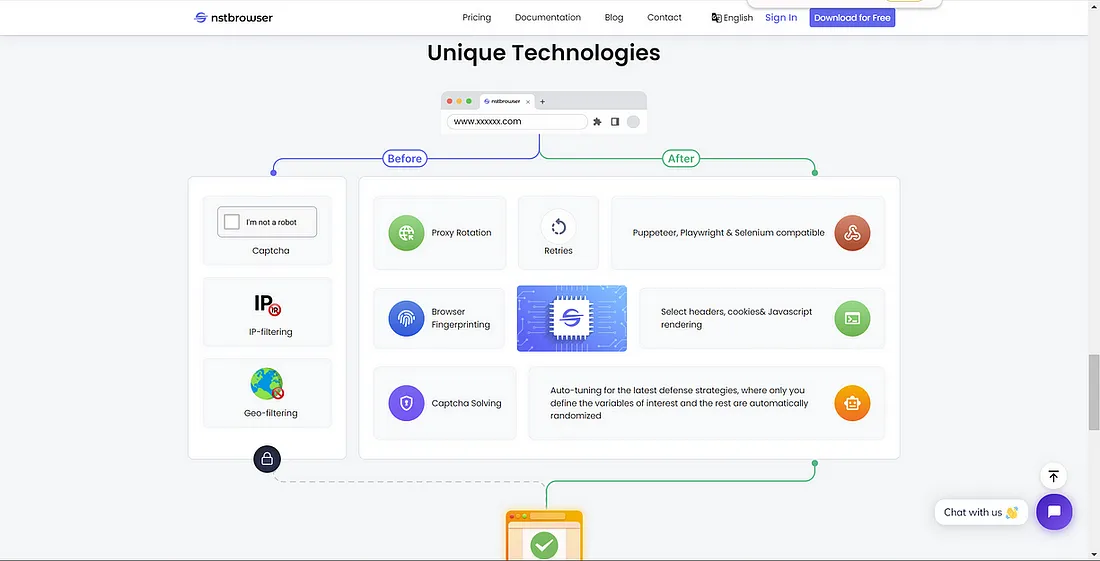Online Privacy
The Impact of Anti-detect Browser on Online Privacy
In today’s digital era, the preservation of online privacy has become an increasingly pressing reference...
Jan 26, 2024

In today’s digital era, the preservation of online privacy has become an increasingly pressing reference. This article aims to delve into the profound implications of anti-detect browser fingerprinting on online privacy. We will explore the concept of anti-detect browsers, examine their operational mechanisms, emphasize the significance of online privacy, analyze the consequences of browser fingerprinting, and discuss the future trajectory of online privacy.
Understanding Anti-detect Browsers:
An anti-detect browser is a specialized tool that enhances online privacy by minimizing digital footprints and obfuscating user identities. It employs sophisticated techniques to obscure browser fingerprints, thereby impeding websites and online services from tracking and identifying users. These browsers offer individuals an elevated level of anonymity and privacy during their online activities.
The Significance of Online Privacy:
Online privacy assumes a critical role in safeguarding personal information and shielding individuals from an array of risks, such as identity theft, data breaches, and intrusive surveillance. Upholding online privacy empowers individuals to exercise control over their digital identities, maintain confidentiality, and preserve their fundamental rights to privacy and freedom of expression. It fosters trust and ensures the establishment of a secure digital environment.

The Functionality of Anti-detect Browsers:
Nstbrowser is a prime example of an anti-detect browser that employs advanced tactics to mimic human browsing behavior, thereby enhancing online privacy. Let’s delve into the various techniques utilized by anti-detect browsers and how they collectively contribute to maintaining anonymity, reducing identification risks, and preserving user privacy during online browsing.
- Dynamic IP address rotation: Anti-detect browser utilizes dynamic IP address rotation, which involves regularly changing the IP address associated with a user’s browsing activities. By frequently switching IP addresses, the product Nstbrowser makes it challenging for websites and online services to track and identify a user’s online activities. This technique helps maintain anonymity by preventing the correlation of browsing behavior with a specific IP address.
- Cookie management: Cookies are small files stored on a user’s device that contain information about their browsing activities. Nstbrowser employs advanced cookie management techniques to handle and manipulate cookies during browsing sessions. It can selectively accept, reject, or delete cookies to minimize the amount of data stored and transmitted, reducing the risk of being identified through tracking cookies.
- User-agent header alteration: The user-agent header is a part of the HTTP request sent by a browser to a website, containing information about the browser and operating system being used. Anti-detect browser alters the user-agent header to mimic different browser types, versions, and operating systems. By changing this information, Nstbrowser makes it difficult for websites to identify the specific browser and device used, further enhancing anonymity and privacy.
- Browser attribute manipulation: Nstbrowser manipulates various browser attributes, such as screen resolution, language settings, time zone, and installed plugins/extensions. By altering these attributes to match those commonly found in typical user configurations, Nstbrowser helps blend in with the crowd and reduces the uniqueness of browser fingerprints. This technique makes it harder for websites to distinguish individual users based on their browser attributes.
- Proxy server utilization: Nstbrowser leverages proxy servers to route browsing traffic through intermediary servers. This approach adds an extra layer of anonymity by hiding the user’s real IP address and location. By routing traffic through proxy servers located in different geographical locations, Nstbrowser further obscures the user’s identity, making it challenging to track their online activities.

Implications for Online Privacy:
The introduction of anti-detect browser fingerprinting has both positive and negative ramifications for online privacy. On one hand, it affords individuals heightened anonymity, enabling them to browse without leaving identifiable traces. This capability proves advantageous in protecting sensitive information, averting targeted advertising, and circumventing online tracking. On the other hand, it can be misused for illicit activities, including facilitating cybercrime or evading law enforcement efforts. Striking a balance between privacy and security is paramount.
The Future Landscape of Online Privacy:
As technology continues to advance, the ongoing struggle between privacy and data collection intensifies. While anti-detect browsers equip individuals with tools to safeguard their online identities, it is essential to strike a delicate equilibrium between privacy and legitimate data collection for purposes such as enhancing user experiences and preventing fraud. The future of online privacy hinges upon the development of robust privacy frameworks, heightened user awareness and control, and responsible data practices by both individuals and organizations. Innovations such as decentralized technologies, encryption protocols, and privacy-enhancing tools will undoubtedly shape the trajectory of online privacy.

Conclusion:
In today’s digitally interconnected world, the preservation of online privacy assumes paramount importance. Anti-detect browsers, exemplified by Nstbrowser, bestow individuals with the means to safeguard their identities and retain control over their personal information during online browsing. Nevertheless, striking a harmonious balance between privacy and data collection is crucial to ensure the integrity of online ecosystems. By embracing responsible data practices, fostering user awareness, and developing privacy-enhancing technologies, we can forge a future where online privacy is duly respected and protected. Safeguarding online privacy necessitates collaborative efforts among individuals, technology providers, and policymakers to establish a more secure and privacy-conscious digital environment.
More






